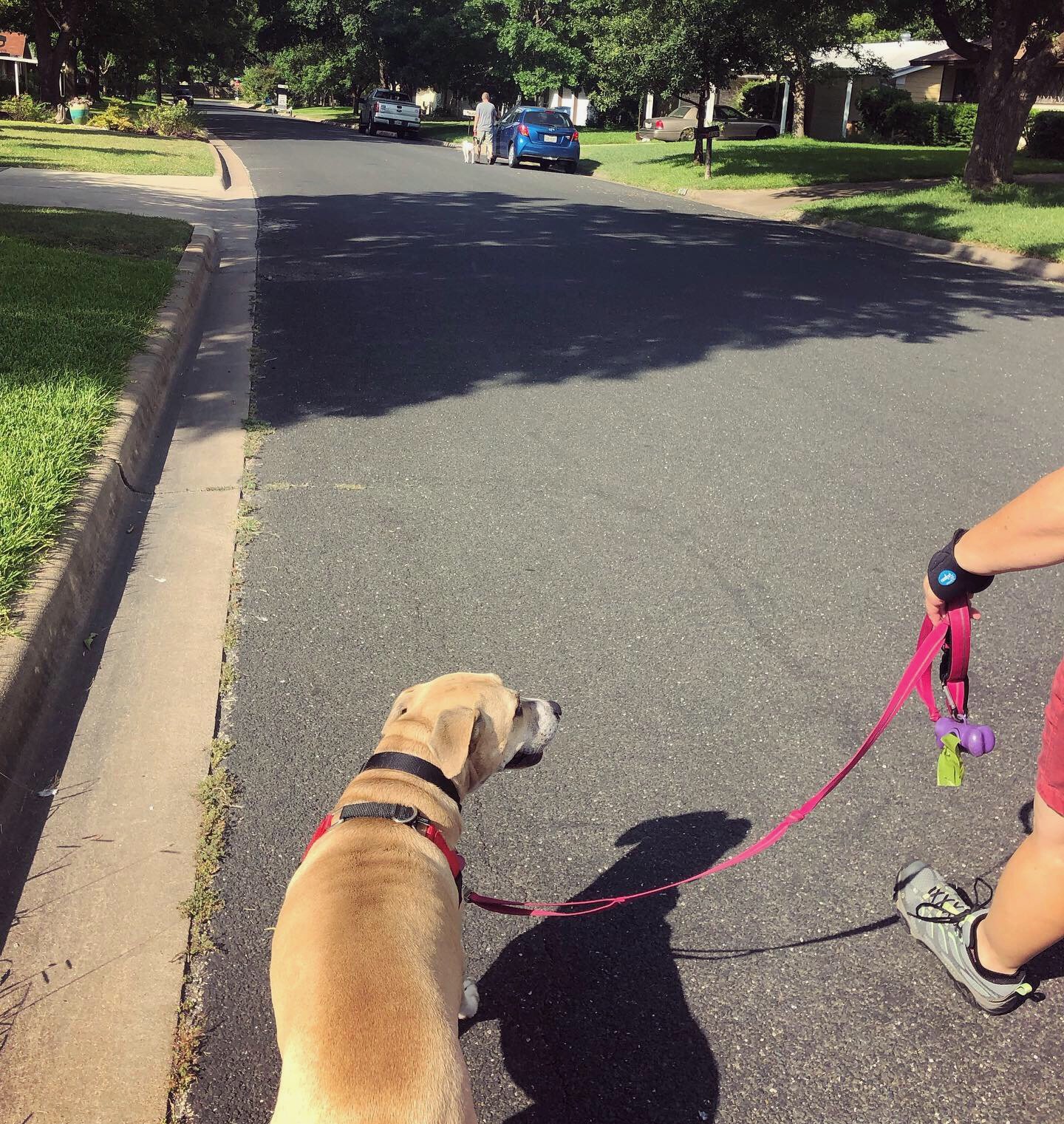What Does Generalization Mean in Dog Training?
In dog training terms, generalization means a dog is able to perform a behavior and/or to experience an associated emotional response across different contexts. In some cases, this is something we are working to get a dog to be able to do successfully and in other cases, it’s something we are trying to prevent. Whichever of those is true, it’s important to understand how generalization works if we want our training to be successful.
For example, maybe we want a dog to feel less afraid of people and to have the skills to navigate social situations more successfully. If that’s true, it means we need to be conditioning a positive emotional response and facilitating appropriate social choices in all of the contexts the dog encounters humans. What often happens when we don’t work on the behavior and associated positive emotional response consistently across contexts is a dog learns that an individual person is cool (hey, this trainer lady is awesome!) but continues to feel fearful of people in general.
Or maybe we are wondering why our dog can be successful with a skill or behavior in some contexts but not others. Don’t they *know* this?! Alas, behavior is highly context specific and dogs often need help to generalize the skills and behaviors we are trying to teach across different handlers, different environments, and with different context cues and levels of distraction present. This is true for any behavior we are teaching though some are easier for dogs to generalize than others. Everyone we want the dog to successfully perform a behavior or skill for and all of the contexts we want a dog to be able to successfully perform the behavior or skill in should be part of our training process.
On the flip side, there are some contexts where we want to *prevent* a dog from generalizing a behavior or associated emotional response. One example of this is resource guarding. Not all or even most dogs are going to generalize this behavior if it is left unaddressed (or if underlying causes of the behavior, medical issues included, are left unaddressed) but some will. For example, a dog may start out guarding a few specific items but over time, without intervention, may generalize the guarding behavior to an increasing number of resources and contexts. This is why, when an unwanted behavior starts to develop, we want to catch it early and provide appropriate intervention rather than potentially giving it time to generalize or otherwise escalate.
On the whole, dogs do not generalize nearly as readily as humans do. They rely a lot on context cues and this is especially true when they are trying to learn a behavior or skill that is more part of human expectations than of the natural canine repertoire. What dogs are most likely to generalize more quickly are strong emotional responses. That means we want to go big on building those experiences that facilitate a positive emotional response and prevent to the best of our ability those experiences where a dog is experiencing a strong negative emotional response.
And to make training easier on ourselves and our dogs, we want to generalize behaviors to the point that we need them rather than letting ourselves become overwhelmed by a cascading visual of infinite contexts and to make our training process FUN and low pressure for everyone involved. Working towards generalization of a new skill or behavior should not look or feel like drills at boot camp and if it does, both human and dog may want to bow out of training because it’s kind of a bummer to participate in. Instead, look for ways to incorporate practice more naturally into your routine, keep sessions short & sweet, and really and truly, focus on the fun. If you and your dog are having a great time during practice, you are also training more effectively. Remember, that strong positive emotional response lends itself to faster generalization!

